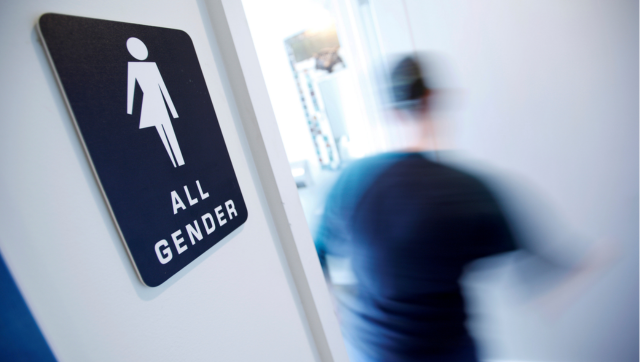The US Supreme Court Tuesday opted not to hear a case revolving around the contentious issue of bathrooms for transgender students. The case, brought forth by Indiana’s metropolitan school district of Martinsville, sought to challenge the requirement of allowing transgender students to use bathrooms based on their gender identity. Despite hopes from Martinsville school district officials, the nation’s highest court rejected the case without providing any commentary. This decision highlights the existing divide in federal appeals courts over whether school policies restricting transgender students’ bathroom choices violate federal law or the US Constitution. In the 2023 case, the Chicago-based US Seventh Circuit Court of Appeals ruled in favor of transgender boys, granting them access to the boys’ bathroom. Judge Diane Wood, who authored the opinion, anticipated the eventual involvement of the Supreme Court, noting the widespread litigation on transgender rights across the country. While the federal appeals court in Richmond, Virginia, supports transgender students’ bathroom choices, the appellate court based in Atlanta ruled against granting this legal ability. Simultaneously, battles over transgender rights persist nationwide, with at least nine states restricting transgender students to bathrooms aligned with their assigned sex at birth, prompting claims of Title IX violations. The Supreme Court’s decision echoes past instances, such as in 2021 when it declined a similar case involving a Virginia school, affirming that prohibiting a transgender boy from using the boys’ restroom was unlawful. Beyond bathroom controversies, disputes over transgender students’ participation in sports teams are ongoing. The Biden administration proposed guidelines allowing schools to block some transgender athletes from competing based on their gender identity in certain circumstances, countering blanket bans while acknowledging the complexity of competitive athletic environments. The legal landscape surrounding transgender rights remains uncertain as court battles persist nationwide. (With inputs from The Associated Press)
US Supreme Court declines transgender bathroom case, leaving legal landscape uncertain
FP Staff
• January 17, 2024, 15:37:25 IST
This decision highlights the existing divide in federal appeals courts over whether school policies restricting transgender students’ bathroom choices violate federal law or the US Constitution
Advertisement
)
End of Article